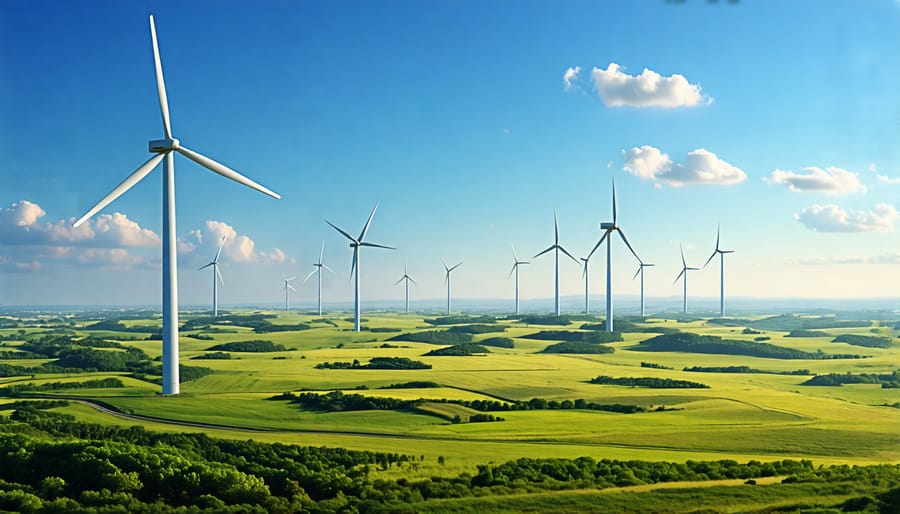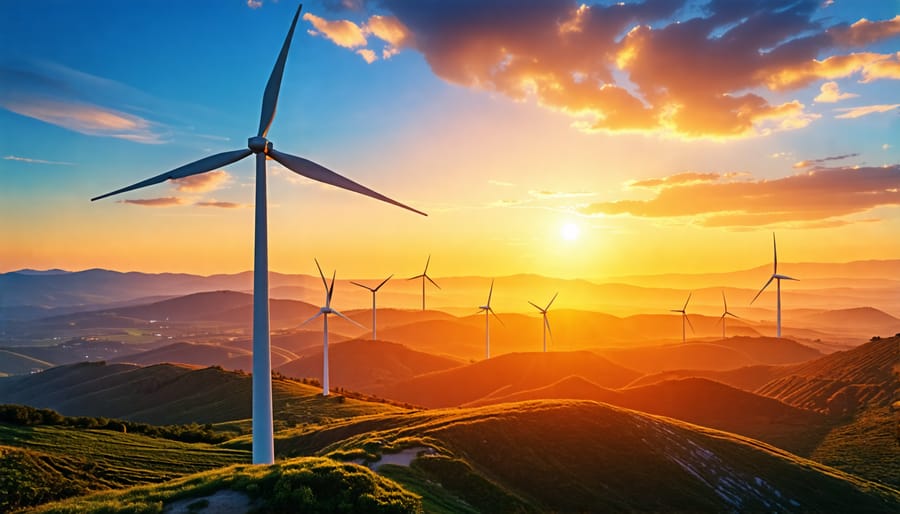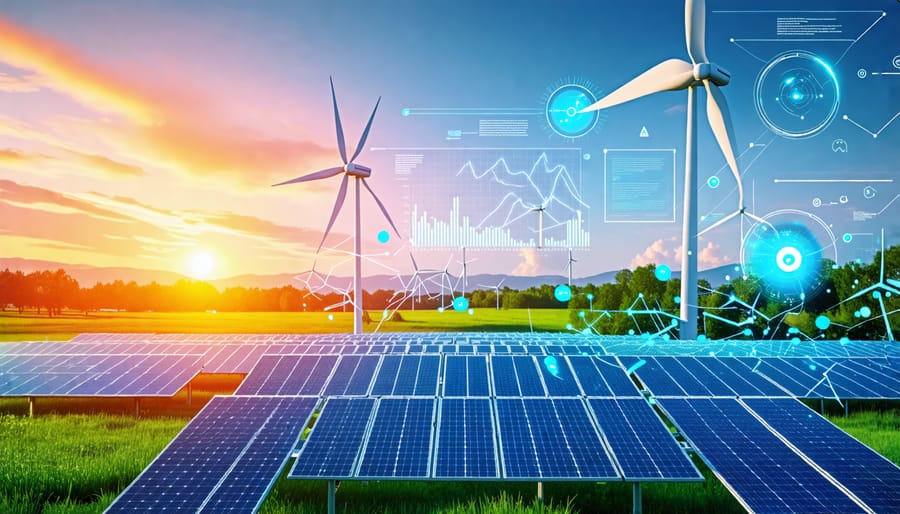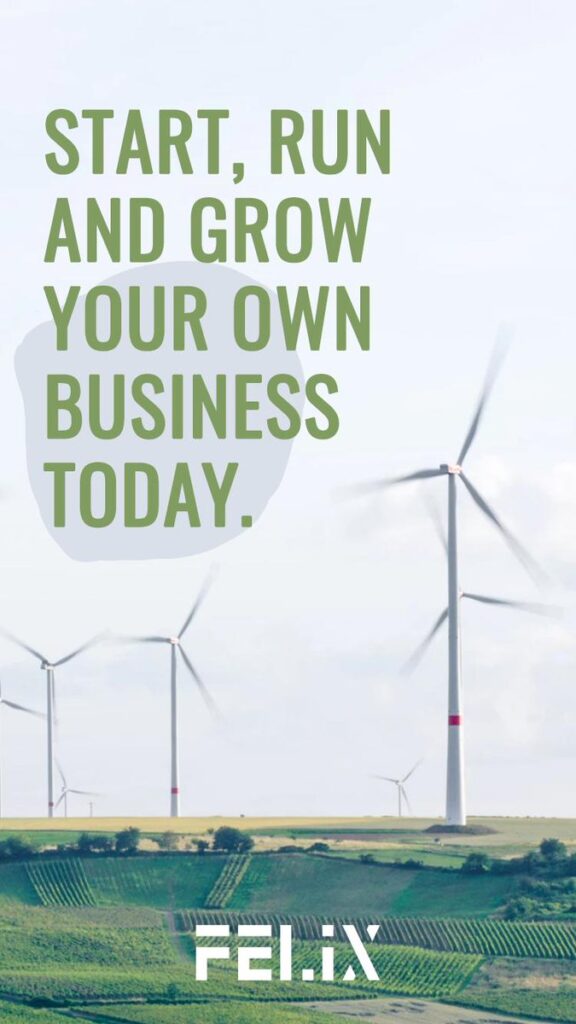Explore wind energy entry-level jobs by acquiring relevant education and certifications in renewable energy. Enroll in programs that align with industry needs, offering foundational knowledge in turbine technology and sustainability. Gain practical experience through internships or apprenticeships with wind energy companies, which not only bolster your resume but also provide hands-on skills essential for the field. Network with industry professionals by attending renewable energy conferences and participating in online forums to stay informed about emerging trends. Understand how wind power functions to enhance your technical proficiency and discuss innovations confidently during job interviews. Tailor your applications to highlight your adaptability, technical skills, and passion for sustainable energy, showcasing your commitment to contributing to an eco-friendly future.
Why Choose a Career in Wind Energy?
Choosing a career in wind energy offers numerous advantages, making it a compelling option for those passionate about sustainability. As the world shifts toward renewable energy, the demand for skilled professionals in this sector is growing rapidly, ensuring job stability and a breadth of opportunities for career advancement. Moreover, wind energy significantly reduces carbon emissions and relies on inexhaustible natural resources, making it a critical player in mitigating climate change. For those looking to make a positive environmental impact, working in wind energy provides a meaningful platform to contribute to a cleaner, more sustainable future.
The industry’s potential for growth is impressive. Technological advances and government initiatives are continuously opening new avenues for innovation and development, creating roles that range from engineering and technical positions to project management and policy analysis. For instance, technicians play a vital role in maintaining and optimizing wind turbines, while project planners and environmental scientists work to ensure sustainable integration into the landscape. By pursuing a career in this field, individuals can be at the forefront of cutting-edge developments and emerging technologies. To further explore the transformative benefits of wind energy, individuals can access resources that highlight its impact on our planet and communities. Joining this dynamic industry not only promises a fulfilling career but also aligns with the collective efforts of bettering our world.

Types of Entry-Level Positions in Wind Energy

Wind Turbine Technician
Wind turbine technicians, also known as wind techs, play a vital role in the maintenance and repair of wind turbines, ensuring these towering structures operate efficiently to harness renewable energy. Their responsibilities include inspecting turbine components like blades, towers, and electrical systems, performing routine maintenance, and troubleshooting mechanical or electrical faults. Working at impressive heights, wind techs utilize safety equipment and precision tools to access the nacelle—the enclosure housing critical turbine components. With the industry’s rapid growth, technicians often work in diverse environments, from sprawling wind farms in rural areas to offshore installations.
To thrive as a wind turbine technician, candidates typically need a technical diploma or associate degree in renewable energy technology, often with specific training in wind technology. A strong foundation in electrical, mechanical, and hydraulic systems is essential, along with the ability to work outdoors in varying weather conditions. Many technicians gain hands-on experience through vocational programs or apprenticeships, where they develop crucial skills under seasoned professionals. With a focus on clean energy, this career not only offers promising job prospects but also contributes significantly to sustainable energy solutions for our planet.
Project Assistant in Wind Energy
Project assistants in wind energy play a critical role in supporting the planning and implementation of renewable energy projects. Often serving as the backbone of project teams, these individuals coordinate logistics, assist with research, and manage communication among stakeholders to keep projects on track. Necessary skills for a successful project assistant include strong organizational abilities, effective communication, and familiarity with project management software. Understanding basic concepts of wind energy and sustainability is also crucial.
Those entering this field frequently have backgrounds in environmental science, engineering, or business, but there are also opportunities for those with a keen interest in renewable energy and the ambition to learn. Real-life case studies highlight how project assistants can progress to roles such as project managers or consultants, driving advancements in sustainable energy solutions. By collaborating with experts, they gain insights into industry practices, fostering their growth and positioning themselves for significant contributions to future projects. With a positive outlook, project assistants can make impactful differences in the quest for cleaner energy.
Entry-Level Roles in Environmental Impact Assessment
Entry-level roles in Environmental Impact Assessment (EIA) are crucial in ensuring that wind energy projects are sustainable and mindful of ecological balance. These professionals, often recent graduates in environmental sciences or related fields, play a vital role in evaluating the potential effects of wind farms on the surrounding environment. This includes assessing factors like wildlife habitats, noise levels, and ecosystem services. By conducting site visits, collecting data, and analyzing reports, they help identify any adverse outcomes such as changes in land use or impacts on local wildlife.
An inspiring aspect of their work is collaborating with experienced environmental scientists and engineers. Through this mentorship, entry-level professionals gain insights into best practices for mitigating negative impacts, such as implementing bird-friendly turbine designs. They contribute to crafting strategies that balance technological advancement with ecological preservation. For instance, these individuals might address concerns about bird and bat collisions by analyzing migratory patterns and habitat data.
Readers interested in EIA roles will find that these positions not only offer rich learning opportunities but also allow them to contribute positively to the renewable energy sector. As they work to minimize the environmental impact, these professionals become integral to promoting sustainable energy solutions while safeguarding our planet’s biodiversity.
How to Land an Entry-Level Job
Educational Paths and Certifications
Aspiring wind energy professionals can launch their careers with a variety of educational paths. A bachelor’s degree in renewable energy, environmental science, or mechanical engineering lays a strong foundation and is often preferred by employers. For those seeking specialized knowledge, programs focused on wind technology or sustainable energy provide targeted learning. Many community colleges and vocational schools offer associate degrees or certificate programs in wind turbine technology, which equip students with practical skills for entry-level positions.
Certification can further enhance employability and professional growth. The North American Board of Certified Energy Practitioners (NABCEP) offers the Wind Energy Professional Certification, which verifies expertise in the field. Additionally, the American Wind Energy Association (AWEA) provides training and workshops that are highly regarded by industry employers.
On-the-job training is common, and internships or apprenticeships offer valuable hands-on experience and networking opportunities. These educational and training avenues ensure aspiring wind energy professionals are well-prepared to contribute effectively to a sustainable future.

Networking and Industry Events
Building strong connections within the wind energy sector is crucial for those eager to embark on a career in this dynamic field. Attending industry events and networking with professionals can unlock numerous entry-level opportunities and provide insights into the latest trends and innovations. Engaging in conferences, seminars, and workshops offers not only a chance to learn from industry leaders but also to meet potential mentors and employers. It’s essential to participate actively in these gatherings, whether through asking questions or joining panel discussions, to make a lasting impression.
Additionally, joining professional associations related to renewable energy can be an excellent way to access exclusive job postings and industry news. Consider online forums and social media platforms dedicated to wind energy, where you can exchange ideas and stay informed. By combining these networking strategies with continued learning and a proactive attitude, you’ll set a strong foundation for a rewarding career in wind energy. Don’t underestimate the power of personal connections in a sector built on collaboration and innovation.
Case Studies: Success Stories in Wind Energy
Meet Sarah Thompson, a former mechanical engineer who transitioned to a rewarding career in wind energy. Driven by a passion for sustainability, Sarah enrolled in a specialized training program focusing on wind turbine technology. With determination and continuous learning, she quickly rose through the ranks, eventually leading a team responsible for maintaining one of the largest wind farms in the region. Her story highlights the importance of upskilling and adaptability, providing a blueprint for those eager to enter the wind industry.
Another inspiring case is that of John Ramirez, who initially worked in the oil and gas sector. Seeking a more environmentally friendly career, John leveraged his experience with large-scale energy projects to pivot into the wind energy sector. By networking extensively and participating in industry conferences, he successfully landed a project management role at a burgeoning wind energy company. John’s journey illustrates how transferable skills and proactive engagement with industry peers can open doors to new opportunities.
There’s also the entrepreneurial tale of Priya and Ravi Patel, siblings who founded their own company manufacturing eco-friendly wind turbine components. Combining their expertise in engineering and business, they received a grant for renewable energy startups, allowing them to innovate and expand their operations. Today, their components are used in wind farms across several continents. Their success story emphasizes the impact of entrepreneurship and innovation in advancing the wind energy field.
These stories demonstrate that whether you’re a seasoned professional seeking greener pastures or someone just starting out, wind energy offers diverse pathways to a fulfilling career. By embracing learning opportunities, leveraging existing skills, and engaging with the wider industry community, aspiring wind professionals can build successful careers while contributing to a sustainable future.
Conclusion
As we conclude, it’s clear that embarking on a career in wind energy presents an exciting opportunity to be at the forefront of innovations in wind energy and contribute to a sustainable future. This dynamic field offers a range of entry-level roles that provide not just a job, but a chance to make a meaningful impact on our planet. Whether you’re driven by a passion for environmental conservation or intrigued by the technological advancements driving the transition to cleaner energy sources, there is a place for you in wind energy. With the right skills and a commitment to learning, you can begin a fulfilling journey that aligns with your values and helps drive positive change. Engaging with this industry fosters a deeper understanding of the complexities and potential of renewable energy, empowering you to be a part of the solution to global environmental challenges. As such, we highly encourage you to consider the wind energy sector as a viable and rewarding career path.





